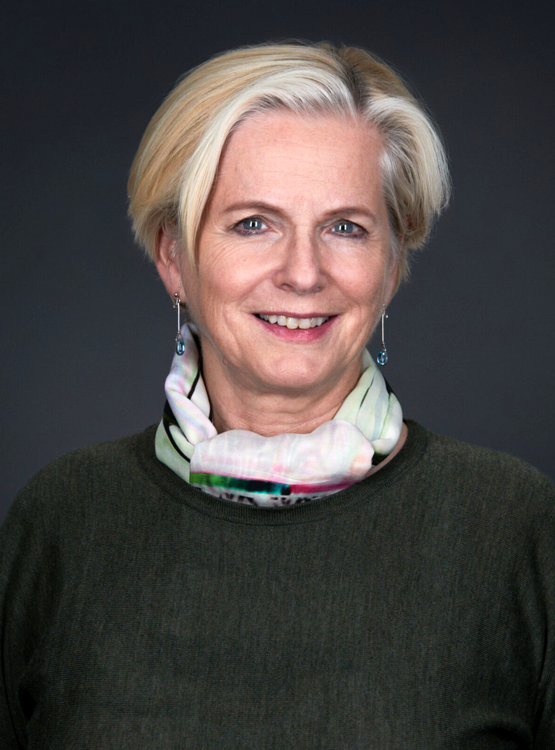
Dear colleague,
Training new researchers is the very foundation for developing new knowledge. New researchers with contemporary competence contribute innovative solutions to society and ensure high quality in services. It is a significant task for the faculty to offer research education that meets the needs of society and is adapted to the times we live in.
Forskerutdanningsutvalget er programr?d for dette omfattende tilbudet.?F? med deg den fullstendige??rsrapporten for forskerutdanningen v?r som n? er lagt ut p? nettsidene.
The research education encompasses The Medical Student Research Program (MSRP), the country's largest PhD program in medicine and health sciences, and the course offerings for postdoctoral researchers. The Council for Research Education?is the program council for this extensive offering. Take a look at the complete annual report for our research education, now available on the website in Norwegian.
International Collaboration
In our efforts to preserve and further develop our program, we engage in extensive national and international collaboration. In the autumn of 2023, we will assume leadership of NorDoc (Nordic Doctoral Training in Health Sciences). You can learn more about NorDoc in my editorial from March.
We also receive assistance and motivation for the further development and renewal of our PhD program through the valuable European collaboration with Orpheus (The Organisation for PhD Education in Biomedicine and Health Sciences in the European System). Orpheus has developed best practices for PhD training. Through their quality improvement program, we receive external evaluations of our standing and insight into what we need to do to be among the best programs in Europe.
Recommendations from NOKUT provide new goals
In the autumn of 2022, NOKUT conducted a review of UiO's systematic quality work in education, and the PhD program at MED was chosen as an example program at the PhD level. The recommendation from the expert committee approved the quality work without major remarks but with several recommendations for further development of UiO's quality system for educational activities. The review report is available on NOKUT's website. We are in good shape, but there are always new goals to strive for.
Facts about Our Research Education
- The country's largest PhD program in medicine and health sciences.
- Over 1400 candidates were admitted to the PhD program this year.
- Around 200 defend their theses with us every year.
- The Medical Student Research Program (MSRP)?has graduated a total of 289 students and 14 students in 2022.
The 2022 annual report provides more detailed figures for last year as well as comparisons with previous years in Norwegian.
A Strong Research Culture is Created in Collaboration
It is within the research groups that research itself takes place. Our experts, supervisors, and partners lay the foundation for researchers to succeed in their work and achieve their goals. This paves the way for a strong research culture and high research ethical standards. In this effort, ethical guidelines at the university and faculty level, as well as the university's standard for research integrity, are valuable guides and tools in the education of both researchers and supervisors.
The Medical Student Research Program (MSRP) is a Success
The MSRP at the Faculty,?was established in 2002 with the aim of increasing interest in a research career among medical students. Halfway through their studies, students are granted a full academic year to begin their research education. Approximately half of those who have taken The Medical Research program, have either completed or started a PhD. The Research Line has proven that early recruitment contributes to more individuals choosing research as their future career path. There is potential for even more individuals to complete this journey. We must learn from the success stories and continue the excellent work that has been carried out for over 20 years.
PhD Program Admissions Back to Normal
187 candidates were admitted to the PhD program last year, indicating that we are back to a normal level after the pandemic years and successful in educating more researchers. Klinmed had the highest number of admissions, while Helsam and IMB had nearly equal numbers. About half of the candidates have a medical degree (cand.med.) as their foundational education, and there is a clear majority of women among the candidates.
Funding is sourced from various financing channels. Health South-East is the largest funding source, and half of the candidates admitted in 2022 are financed by research grants from there. The list of dissertations from 2022 is impressive, and we congratulate all candidates, supervisors, and collaborators on their remarkable achievements!
Thank You for Your Efforts
Significant work is carried out by the Research Education Committee, which is the academic council for research education, and by the research administration at the faculty. I would like to take this opportunity to thank the committee and all experts, leaders, user representatives, and advisors who make an immense effort to maintain high-quality education. I also want to thank everyone who contributed to the research education annual report and recommend that all interested individuals take a look.
Best regards, Grete